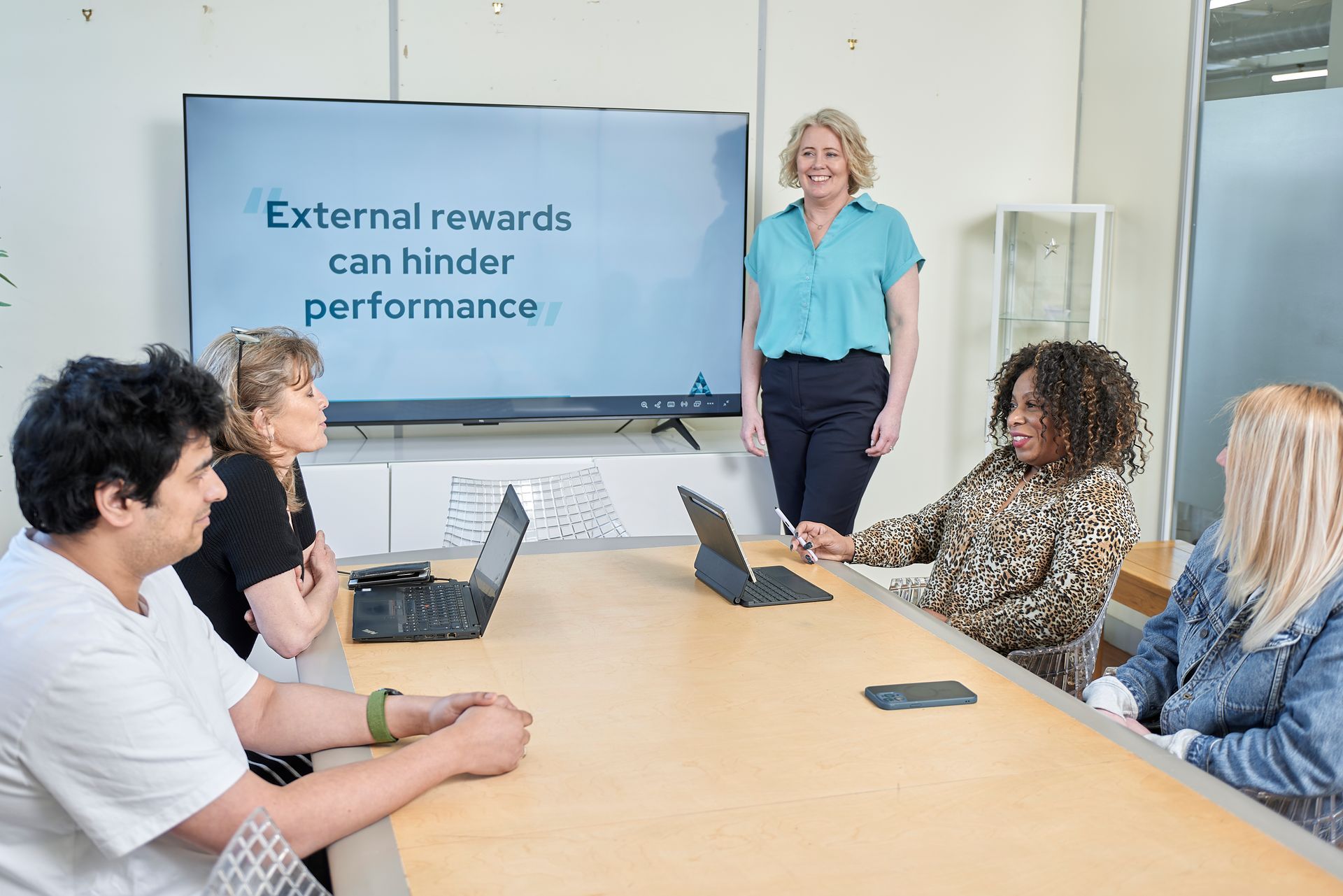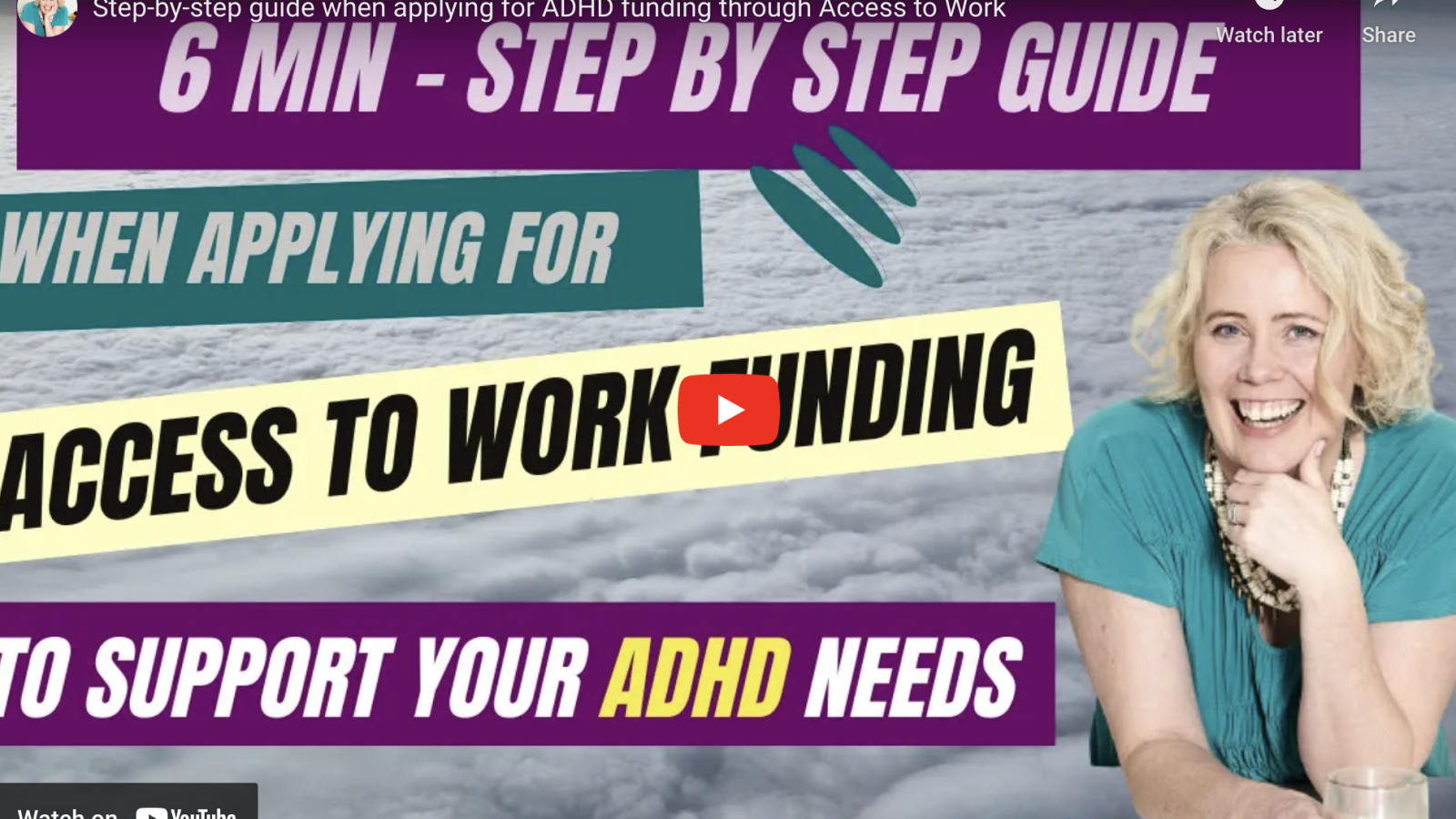
How to decide, and what to consider first.
Disclosing ADHD at work is one of the biggest questions I see people grapple with. Not just in coaching sessions, but in late-night Google searches, forum posts, awkward WhatsApp chats with friends:
“Should I tell my manager? Will it backfire? Will they even understand?”
It’s easy to think disclosure is the golden ticket, that once you tell, your workplace will automatically adjust and support you. In reality, it’s more nuanced.
Why do you want to disclose?
Start with your why.
- Are you hoping for specific adjustments?
- Looking for understanding about time or communication needs?
- Or is it more about feeling honest, dropping the mask you’ve been carrying?
There’s no wrong reason. But knowing yours helps guide how, when, and if.
It’s individual — and completely up to you
There really isn’t a single “right time.” Some people prefer to wait until after they’ve secured a role. That way, they know the decision was based purely on their skills and fit, ADHD wasn’t part of the hiring equation, consciously or not.
Others take the opposite approach. They’re absolutely done with environments that aren’t supportive, and disclosure becomes a filter tool. By talking about their needs early on, they get a sense of how an employer reacts, and that tells them a lot about whether it’s a place they even want to be.
Disclosure is a tool, not a cure
It can absolutely unlock support. It can also open you up to misunderstandings, assumptions or frankly, underwhelming responses.
I’ve worked with clients who felt huge relief after telling their manager, who then actively helped them thrive. I’ve also seen situations where people were met with blank stares or well-meaning but clumsy comments.
Disclosure is often most powerful paired with clarity. What adjustments would actually help you? Are there ways to trial changes first, even informally?
It’s not making a fuss
Asking for what you need to work well isn’t about being difficult or demanding, it’s about levelling the playing field so you can do your best work, just like anyone else. I would argue that smart employers are really interested in having this conversation as it’s where they get the best return on their investment in you.
I often use the example of how a new CEO might ask for two monitors, a specific desk setup or weekly check-ins. Nobody thinks they’re being fussy. They’re just being clear about what helps them succeed.
You don’t have to lay it all out
If you’re not ready to share specifics in an interview or early stage, another option is to flip the conversation. You can ask questions that give you valuable clues without revealing anything personal. For example:
- How does the team support different working styles?
- What does inclusion or neurodiversity look like day to day here?
- How do you approach flexibility or adjustments if someone needs a slightly different way of working?
This way, you’re learning about their culture without feeling exposed. (And with Gen X making up most of the workforce in 2026, these conversations are becoming far more normal. Many organisations expect to discuss how people work best.)
How to talk about it (without it feeling awkward)
Sometimes it’s enough to focus on how you work best. That’s actually one of the best ways to make sure you’re taken seriously, it moves the conversation away from diagnoses and onto outcomes.
For example:
- I work best when there’s a clear agenda before meetings so I can prepare my thoughts.
- I thrive when projects have structured milestones and check-ins.
- Written follow-ups after conversations really help me make sure nothing gets missed.
- Captions on online meetings make it easier to track who’s speaking.
You can also frame it by linking ADHD back to how it makes you effective:
Having ADHD means I’m naturally creative and good at spotting connections others might miss. The flipside is I work best when there’s clarity around priorities and timelines.
This shifts ADHD from being a “problem” to being context for how you add value, along with how to support you to keep doing that.
If it doesn’t land well? It’s still not wasted.
One client recently wrote a beautiful letter to her manager explaining what she needed. It wasn’t met with curiosity or care. In fact, it was met with eye-rolls and frustration.
That stings. It dents your confidence, makes the idea of raising it anywhere else feel even more fraught. But that letter wasn’t wasted. It became the first draft of a personal workplace manual, something she can refine, keep private, or adapt to future roles.
Practical notes
If you do decide to disclose:
- Keep it focused on what helps you do your best work.
- You don’t have to share your entire health history.
- You can start small, testing the waters with partial information or just a conversation about work style.
Sometimes a short letter or summary helps, especially in bigger organisations.
And if you don’t want to?
That’s valid too. You can still advocate for supportive ways of working without labelling them. Many workplace needs are universal: clearer deadlines, reduced last-minute changes, or better information flow. You’d be surprised how often “personal productivity tweaks” are really just good management.
Two free tools that can help
If you’re figuring this out, I have two free resources that might help:
📂 The “How I work best” template: Helps you map out your strengths, challenges and the adjustments that make a difference. You can keep it for yourself, use it to build language, or share snippets in interviews or onboarding.
📖 Thriving with ADHD at Work e-book: Dives deeper into how to figure out what you need, communicate it, and advocate for yourself in a way that’s grounded — not apologetic.
👉 You can download both here:adeptina.com/copy-of-resources
💭 Curious: Have you disclosed ADHD at work? What helped (or what do you wish had been different)?
n from a different source.








